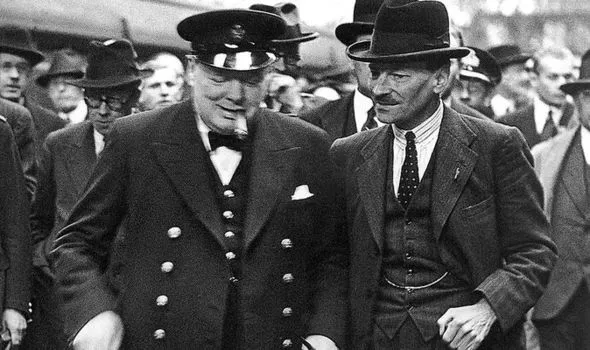Politicians were immeasurably better in the good old days
Published on 8th April 2021

In December 1981, Taoiseach Garret Fitzgerald travelled to Paris for a crunch meeting with President Francois Mitterrand concerning EEC agricultural matters. Prior to the formal meeting in the Elysee Palace, Fitzgerald asked Mitterand, in perfect French, about the mysterious gap in the Catholic intellectual tradition in 19th century France. Mitterand, who considered himself an intellectual and was an arch Catholic conservative in his youth, dropped his diffident and aloof manner immediately and kissed Fitzgerald on both cheeks faire la bise style.
For the rest of his presidency, Mitterand was Ireland’s chief ally in fraught negotiations with the European Economic Community.
This anecdote came to mind whilst reading Leo McKinstry’s book, Attlee and Churchill, based on Britain’s most beloved Prime Ministers: a nostalgic ode to Britain’s finest hour that casts a terrible pallor on modern British politicians especially, ‘the greased piglet’, Boris Johnson, and the lamentable Jeremy Corbyn.
McKinstry’s subjects are a study of contrasts: Churchill as the ‘Boy’s Own’ buccaneering, booze swilling, charismatic, Imperial Revanchist, painter and author (including his six volume history of World War II). Churchill believed in British exceptionalism and a geopolitical position where Pax Britannica ruled the waves.
Clement Attlee looked like a bank manager and had all the magnetic charisma of an accountant. That this shy and unassuming politician became leader of the Labour party ahead of political superstars such as Ernest Bevin, Hugh Dalton, Stafford Cripps and Nye Bevan was partly down to the desperate state of the party after Ramsay MacDonald’s treachery in 1931 and Attlee’s inner strength (Major Atlee was badly wounded twice in World War I) and his trenchant belief in socialism. After leaving University, Attlee became a Welfare Officer in the East End of London, where his nascent Conservative views were radically transformed when he saw real poverty at first hand.
Attlee was crucial in Churchill becoming Prime Minister of the National Government in 1940 after Neville Chamberlain’s resignation. Although their political ideologies seemed incompatible, they both shared a romantic vision of Britain that was under existential threat from Nazism. However, Churchill remained a bogeyman to the Labour movement: his roles in the Tonypandy riots and the 1926 General Strike, along with his adoration of laissez-faire economics and loathing of the Trade Union movement made it unlikely that a coalition between the Tories and Labour would last the course of war. Attlee was a master in the art of the emollient and ameliorate politics as was seen in uniting a fractious Labour Party and used all his political nous in keeping the wartime coalition together.
McKinstry recognises that Churchill, through the brilliance of his oratory and deployment of the English language united Britain into girding its loins in the face of its darkest hour, but: ‘If Churchill was the giant of the war, Attlee was the hero of the peace.’ Attlee’s post war Labour government changed the way Britain was run for decades afterwards with the introduction of the NHS, the expansion of the welfare state, the nationalisation of strategic industries, and the dismantling of the Empire.
The author writes with elan and wit and has a good ear for a spicy anecdote which was first displayed in his biography of Jack and Bobby Charlton (Jack and Bobby: A story of brothers in conflict). The abiding feeling is of Britain’s favourite pastime: nostalgia. Beer was better, football was better, and politicians were immeasurably better in the good old days.
Access eBooks/eAudiobooks on your phone, tablet or reader. Once you have installed the app, search for Dublin in the ‘Library’ field provided and then sign in using your library membership card number and PIN.
Watch our how to video on Borrowbox. Members of other library authorities will need to log in using a different link.
Submitted by Tom in Drumcondra Library